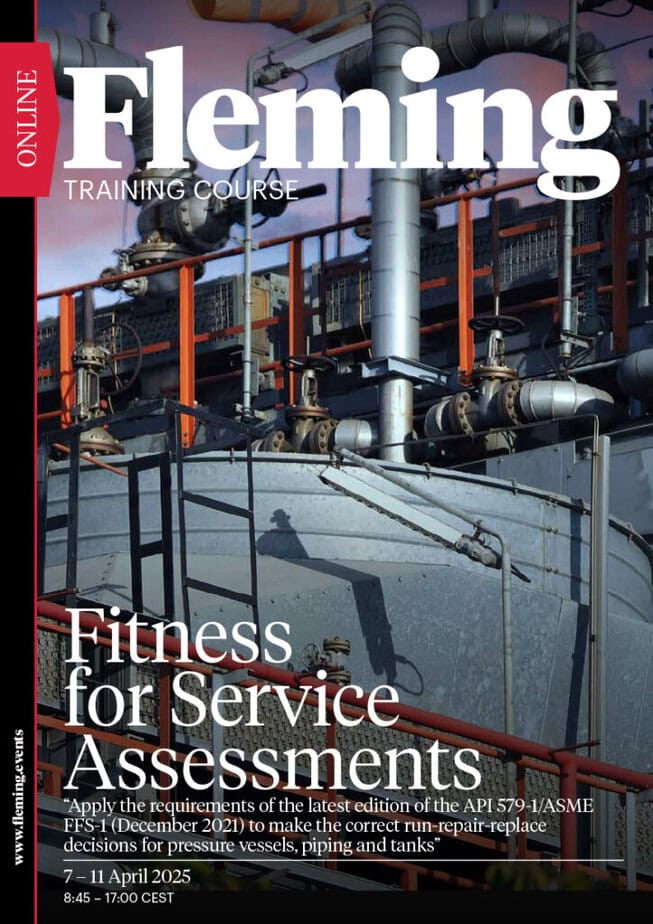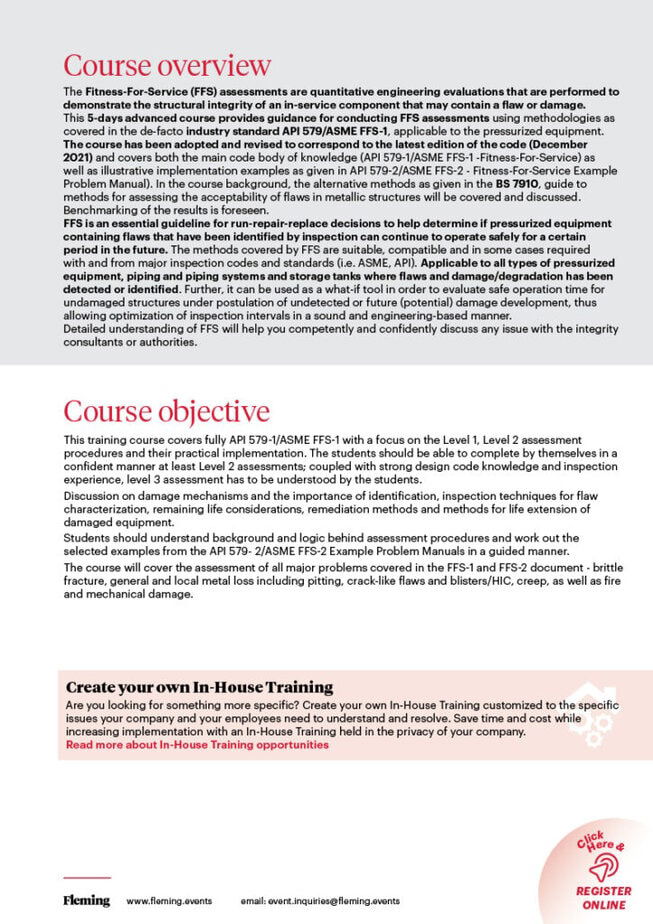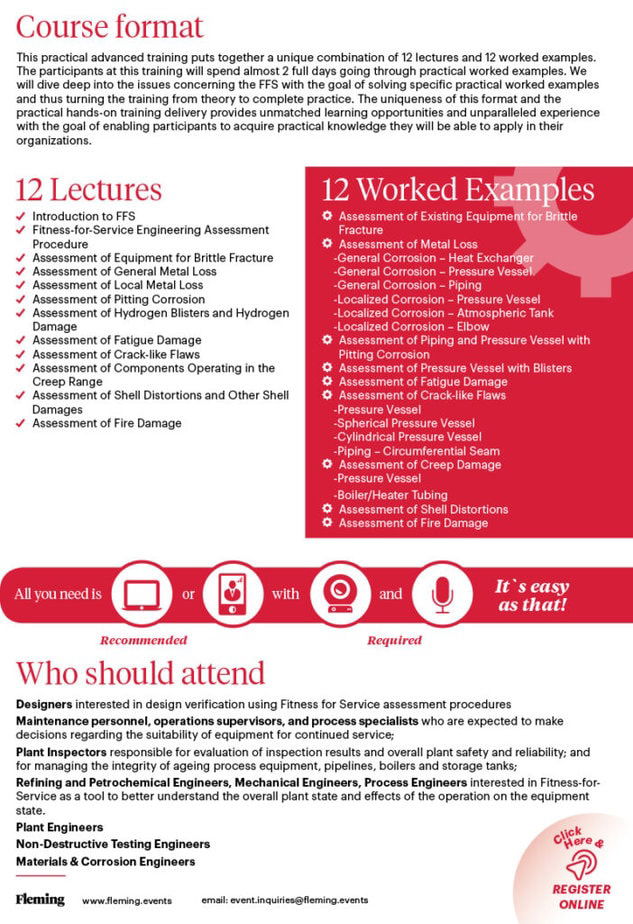Course description
The Fitness-For-Service (FFS) assessments are quantitative engineering evaluations that are performed to demonstrate the structural integrity of an in-service component that may contain a flaw or damage.
This 5-days advanced course provides guidance for conducting FFS assessments using methodologies as covered in the de-facto industry standard API 579/ASME FFS-1, applicable to the pressurized equipment. The course has been adopted and revised to correspond to the latest edition of the code (December 2021) and covers both the main code body of knowledge (API 579-1/ASME FFS-1 -Fitness-For-Service) as well as illustrative implementation examples as given in API 579-2/ASME FFS-2 – Fitness-For-Service Example Problem Manual). In the course background, the alternative methods as given in the BS 7910, guide to methods for assessing the acceptability of flaws in metallic structures will be covered and discussed. Benchmarking of the results is foreseen.
FFS is an essential guideline for run-repair-replace decisions to help determine if pressurized equipment containing flaws that have been identified by inspection can continue to operate safely for a certain period in the future. The methods covered by FFS are suitable, compatible and in some cases required with and from major inspection codes and standards (i.e. ASME, API). Applicable to all types of pressurized equipment, piping and piping systems and storage tanks where flaws and damage/degradation has been detected or identified. Further, it can be used as a what-if tool in order to evaluate safe operation time for undamaged structures under postulation of undetected or future (potential) damage development, thus allowing optimization of inspection intervals in a sound and engineering-based manner.
Detailed understanding of FFS will help you competently and confidently discuss any issue with the integrity consultants or authorities.





